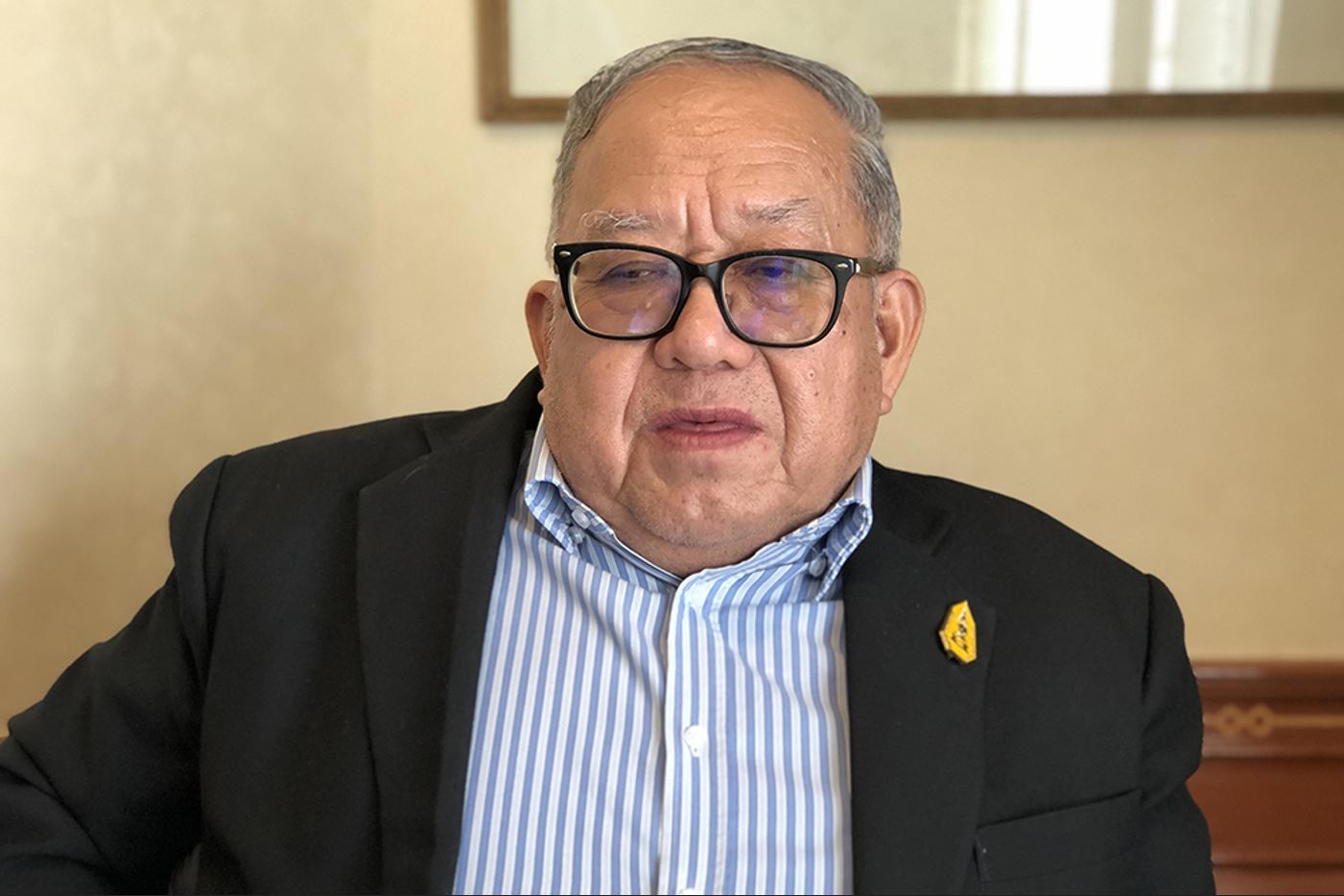CNI Interview
12 August, 2022
Major-General Min Aung Hlaing said that more ethnic groups must participate in the political stage, the Hluttaw, in order to claim their regional rights in accordance with the law.
However, Myanmar's political situation is complicated and uncertain, so the ethnic groups are still unable to consider fully entering the parliament and are relying only on the armed path.
The reason for this is that powerful parties and groups within the parliament have rejected the discussions presented by the ethnic groups in the parliament with a majority of votes, and there are people who have turned their backs on the parliament and turned to the armed path.
CNI has asked Colonel Khun Okker, an ethnic armed leader, about these situations.
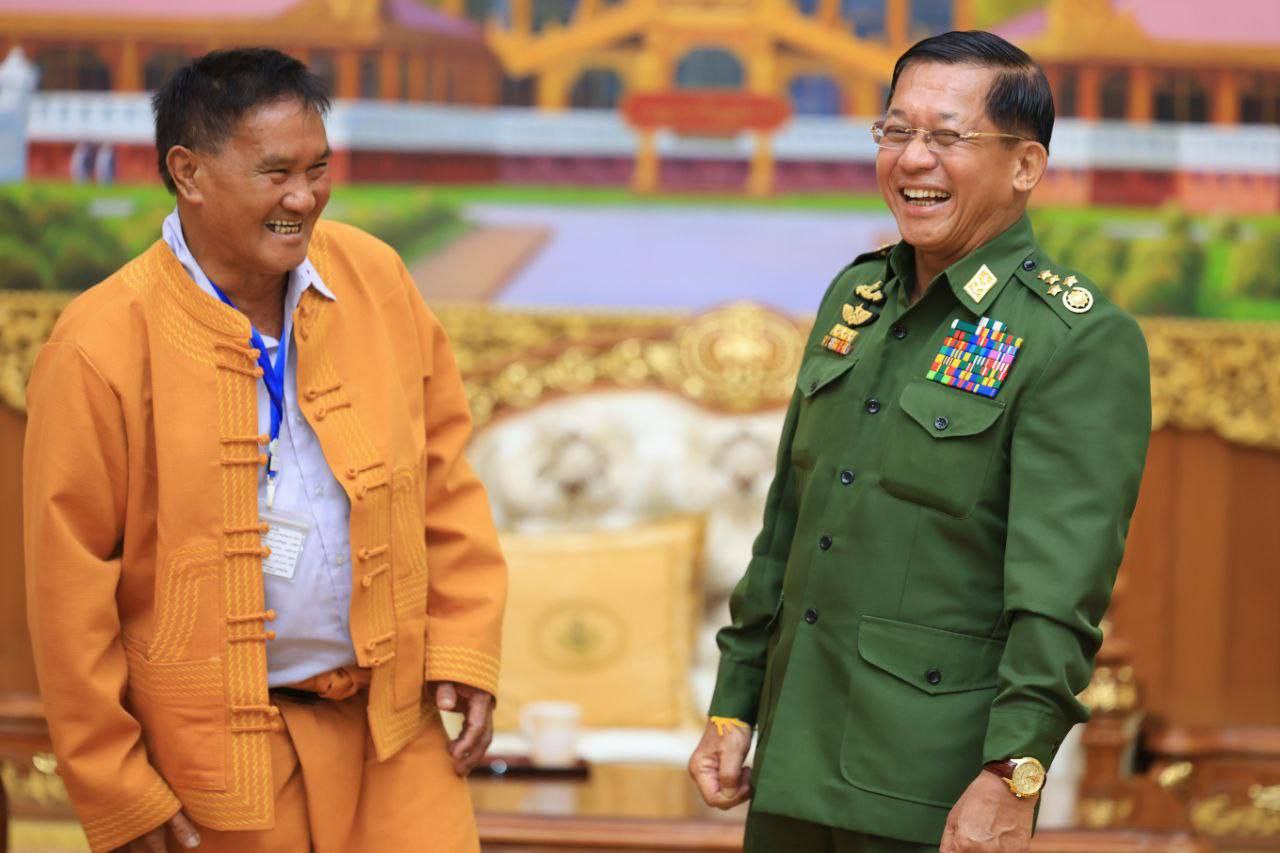
Senior General Min Aung Hlaing and SSPP Vice-Chairman (1) and Commander-in-Chief Sat Khe Thai
Q ။ ။ When SSPP and SAC met for peace, SAC said that Hluttaw is the highest political body in a democratic system and that these ethnic groups must participate more in Hluttaw, which is also a political stage, in order to claim their rights in accordance with the law. Considering what they said, could you share your opinion about how much interest do you think ethnic groups and ethnic armed organizations have in this Hluttaw scene?
A ။ ။ Legally speaking, under normal circumstances, speaking of normal circumstances, there are different types of normal conditions. Under the conditions that fully accord with democratic rights, the parliament can do its work willingly. Because of that, Hluttaw can do its work willingly. The government can do its job, the judiciary can do its job and when these three powers can do their job, Hluttaw can also be relied upon since it can work freely. Under normal circumstances, the parliament is reliable.
Q ။ ။ Yes, sir. In the past parliamentary debates, when these ethnic groups presented the demands for their rights, they said that they had experienced disapproval and rejection by a majority vote. Because of that, there are those who chose the armed path. So, how much confidence can we have for these ethnic groups to be involved in the parliament?
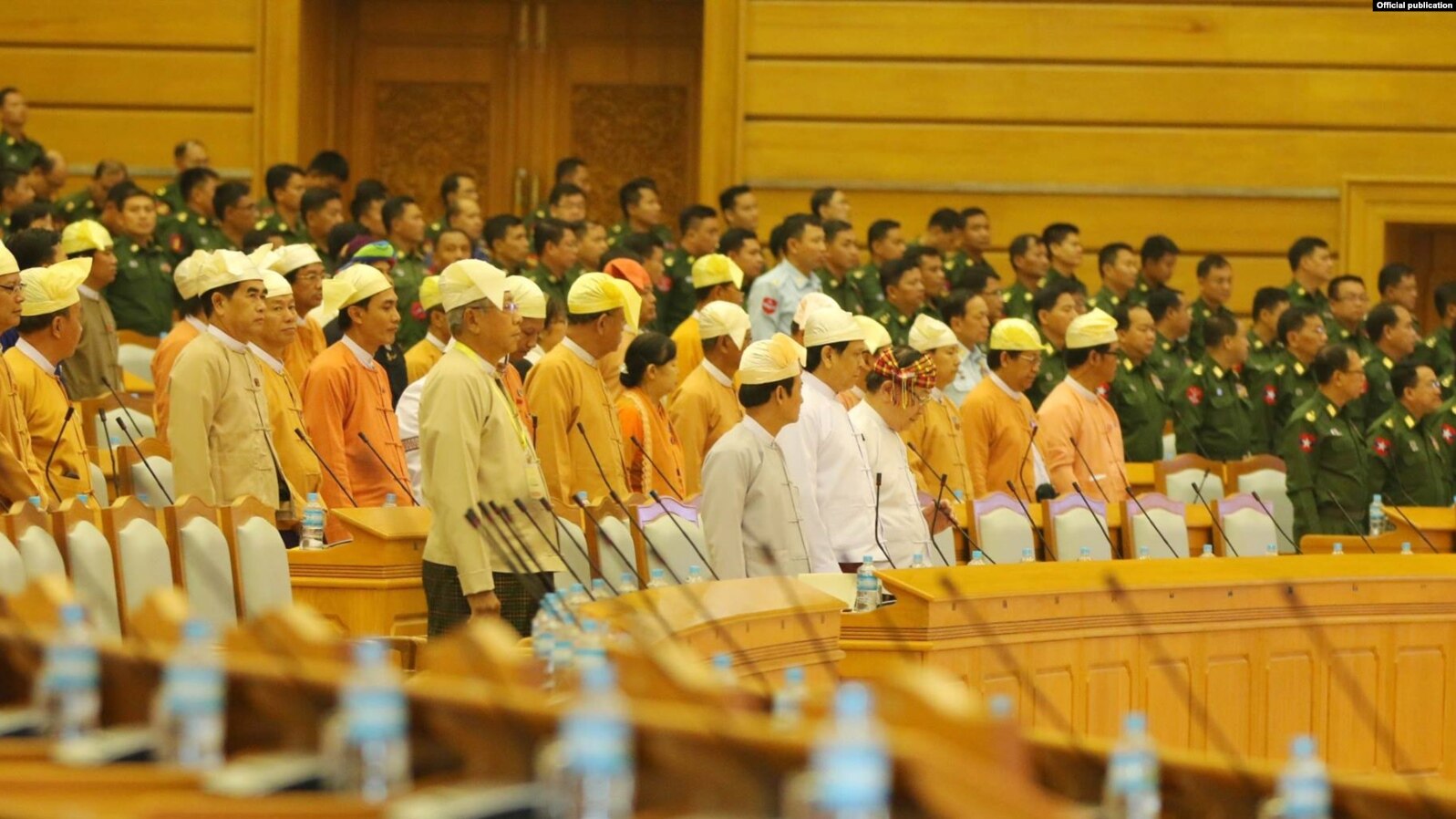
Myanmar Parliament
A ။ ။ Now, Hluttaw that emerged in Burma, Hluttaw under U Nu, Hluttaw under U Ne Win, the Union Hluttaw and the State Hluttaw under U Thein Sein. Strictly speaking, they cannot be called a parliament under this form of democracy. Therefore, since the Tatmadaw has 25 percent of the parliament, it is against democracy.
Only 75 percent of the people who were elected turned up, and the party who won only 75 percent was once again dominant. So, the right to speak for ethnic parties and members of ethnic parliaments has shrunk. It shrank quite a lot. So, there is no reason to claim success in any way. According to the current structure made under 2008, there is no reason to be entitled to any rights.
Q ။ ။ Even under the last NLD government, there were some things that were not approved when the ethnic rights were presented and demanded. That’s why they are saying that in the 2023 election that will be held by this miliary council, how much can we trust them when this is part civilian government and part junta?
A ။ ။ From what I see, it is a kind of power sharing. If it is a form of power sharing, it will just be at a level of sharing. It will not become the parliament that guarantees our ethnic rights if that’s the case.
Q ။ ။ Now, when the peace talks are held with these ethnic armed groups, they are talking about holding elections in almost every group. So, why do you think they told the armed groups about this election?
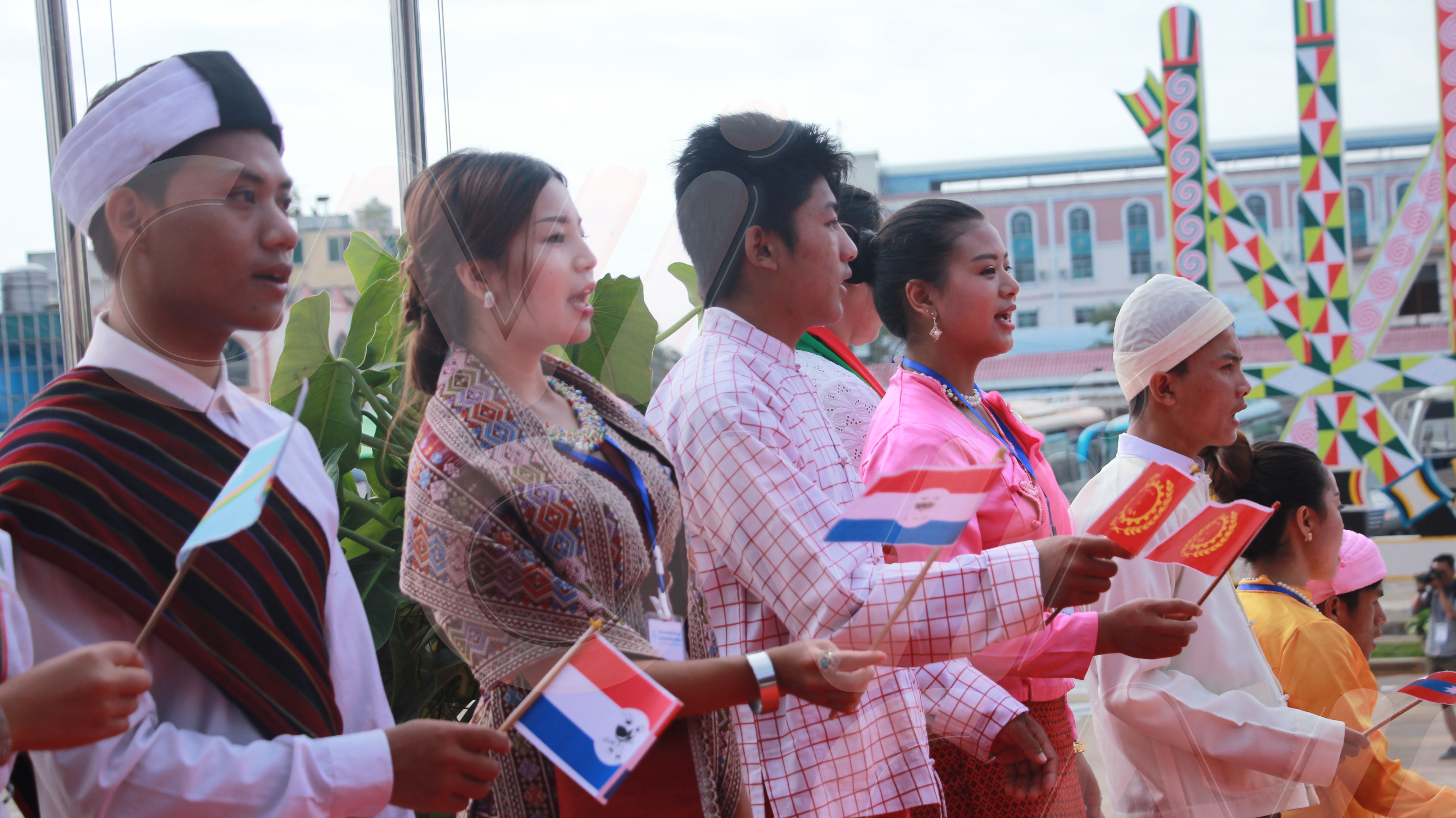
ethnic groups
A ။ ။ To put it clearly, the current SAC, only has these ethnic groups as their partner organizations. Therefore, they consult them and ask for their opinions. How could we ask an enemy to do that? The enemy will just oppose, cancel, and destroy everything we’ll say.
Now that the ethnic groups are their partners, it is like consulting our allies. However, it is assumed that this will be successful only if the opposing forces, who are now major enemies, cooperate. If they are going to forcefully protest to destroy it, I don’t think this election will have good prospects since we are still in a volatile situation.
Q ။ ။ Yes. So can SAC use the upcoming 2023 election as a political exit? Do you think it really is a political exit?
A ။ ။ What we think is more than a political exit. They are currently holding power in accordance with the provisions of the state of emergency provisions enacted in 2008. It has a 2-year term. At the end of the term, how it will be continued depends on them.
If they do it according to the constitution, it is possible that they will end the authority they have attained in accordance with the constitution. We will have to wait and see how it will end and then continue from there. The authority given by the constitution will be terminated in this election. As election can be defined as the last act of authority given by the constitution.
Q ။ ။ Yes. Recently, the ASEAN Special Envoy said he will meet with Daw Aung San Suu Kyi and use his power to put a stop to the violence that is currently happening in the country and the miliary also seemed to be agreeing with him. This is a matter for meeting and discussion, and we would like to know how Daw Aung San Suu Kyi would respond. Can she accept it or not?
A ။ ။ This question is difficult for us to answer. Now they are competing in the international diplomatic front. The government outside and the one reigning inside are competing against each other and we will have to see how this will change the balance of power. As for the Eastern Group, China and Russia are on the side of the Miliary Council and the Western Group is on NUG’s side.
I think Daw Suu’s decision will also depend on how strong and how the balance will be in these power scrambles. I don’t think Daw Suu will be in a rush to decide.
I just assume that Daw Suu will make a decision depending on the unfolding political circumstances if the ASEAN Special Envoy comes in this September.
That’s why it is difficult to make a guess and this is also the time when the competing level of both sides is strong.
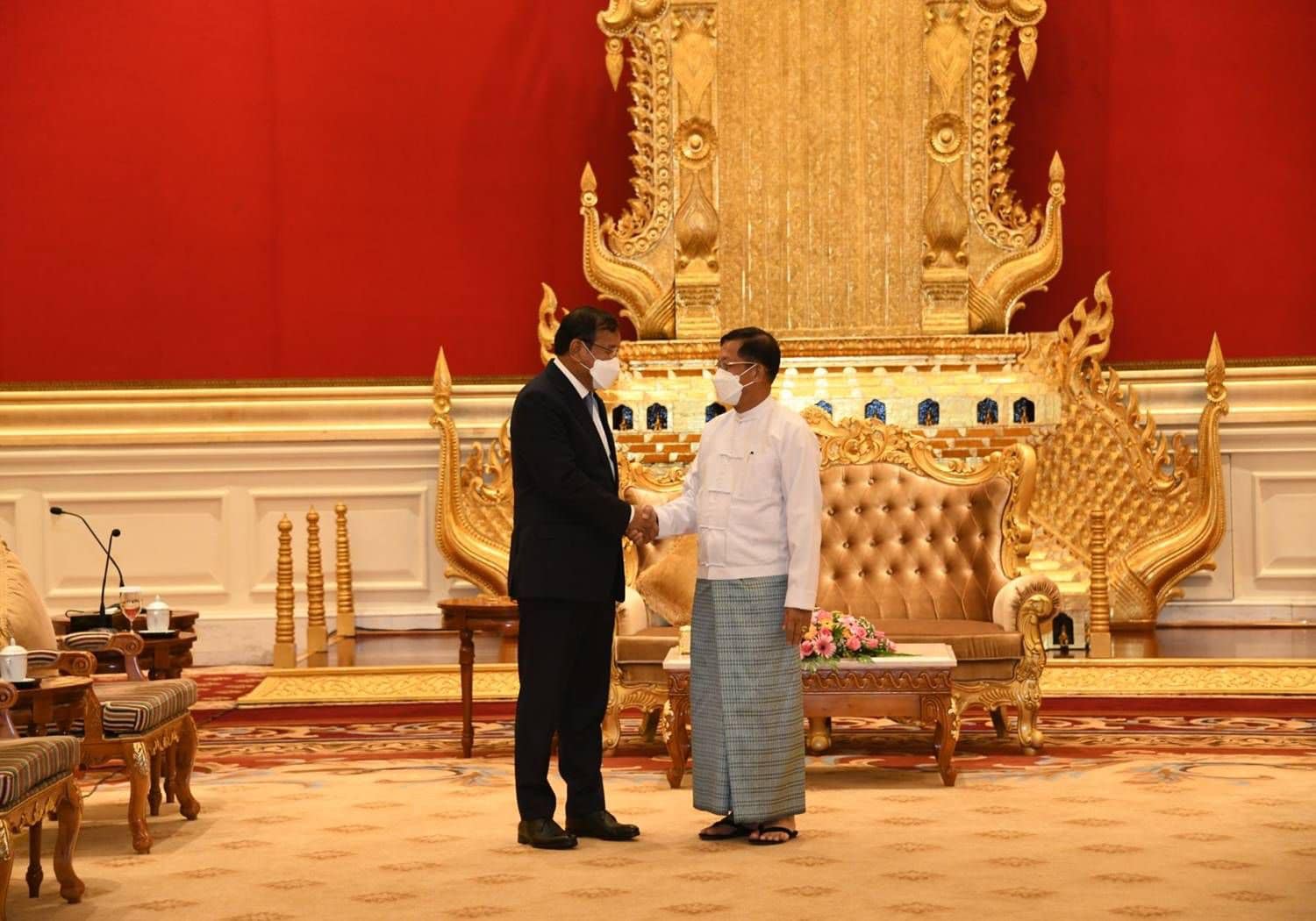
ASEAN Special Representative Prat So Khun and General Min Aung Hlaing
Q ။ ။ Yes, some politicians have considered that Daw Aung San Suu Kyi will not accept this meeting. If she did, she would have to make some kinds of comment or remark. Otherwise, she would be seen as keeping silent. That’s why they said she will deny the meeting. What do you think of it?
A ။ ။ This is also hard to predict. There is nothing impossible in politics. There will be changes considering the political climate and the international ups and downs.
That’s why I think that whether it’s the election issue or Daw Aung San Suu Kyi’s attitude, it’s always changing at the same time. So, it is hard to say in advance whether they will have happened or not. Very often, the prediction goes south. So, it is better to take a guess when it happens.
Q ။ ။ Yes, Colonel. Now, when will the second round of peace talks with SAC be resumed?
A ။ ။ I don’t know. Because after the execution of those four people, the civic movements and social upheavals have accumulated an acceleration which I do not think will be a smooth process. If that even happens, it will probably coincide with the time the ASEAN Special Envoy will come out.
The ASEAN Special Envoy is supposed to come this September, so it will be before that ASEAN Envoy arrives. I don’t see much of that happening in August. I don’t know if it will be released the same time that ASEAN Envoy comes. So far, we haven’t seen the exact invitation. I have only heard that it is all up in the air and there is something special about it. We don’t know the plan yet.
Q ။ ။ Yes, now, what do you want to say as a colonel about SAC’s announcement for the ethnic groups to be more involved in the parliament which is the political platform to demand their rights?
A ။ ။ From what he said, to enter Hluttaw, one must go through the election. According to democratic law, only the person who wins that election becomes a member of parliament. However, there is a need to remove those who are already members of parliament without entering the election.
If so, then what they say is indeed true. If the system that does not require an election to become a minister is still in place, the parliament will not be a reliable parliament. That's all.


